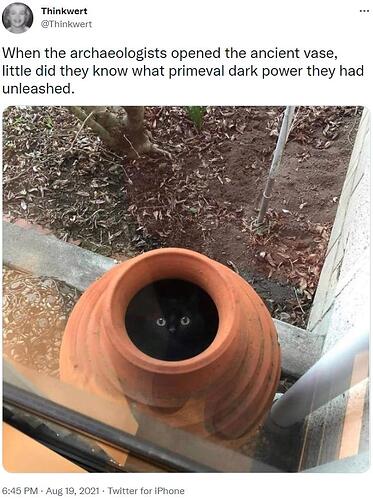I have it on good authority from colleagues involved in organic residue analysis that medieval Muslims also weren’t averse to the odd cheeky piece of pork. They have received mixed reactions to their talks on this, as can be imagined
Great article!
A book I read said the Ancient Egyptians were “ambivalent” re: pigs and pork. Priests were forbidden it, except, IIRC, during a major festival (can’t remember which, if the author mentioned it) during which everyone had pork.
The common people could rarely afford any meat - fishes were their main animal protein source - and would eat pork any chance they got. Wealthy folks, as always, readily procured whatever they liked, inc pork.

Before stonehenge there was woodhenge, and before that strawhenge. But the big bad wolf blew down strawhenge and woodhenge, leaving stonehenge in England. The big bad wolf couldn’t cross the English channel because the boatsman couldn’t figure out the sheep-wolf-cabbages problem. This also explains why there is so much mutton and cabbage in anglican cuisine.
QED
This was an interesting corroboration by archaeology and dna evidence backing up an historical record;
It took amazingly long to follow up with the first drive-through, though.
Huh; the article prompted me to look for where Flagstones is, because my father’s family is from Dorset, which led me down a small rabbit hole to the Celtic tribe of the Durotriges, which are probably my ancestors (probably a descendant of Cheddar Man too, since he was apparently the ancestor of a good percentage of people from that region), and interestingly, the Durotriges are thought to be matriarchal and matrilocal, from the burial patterns, which is apparently rare amongst the Celts.
In a pharaoh tomb, archaeologist examines the inscriptions … of ancient tourists
[…]
“The greatest number of inscriptions come from the Greek-Roman period, that is, from the time of the conquest of Egypt by Alexander the Great to the division of the Roman Empire in the 4th century” - said Prof. Łukaszewicz.
[…]



